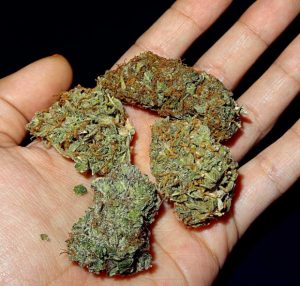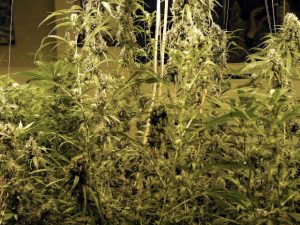Are Cannabis Hand-Trimmers Soon-to-be-Obsolete?
The cannabis industry has a good number of hand trimmers, those who don so-called “sticky gloves” to spend hours meticulously removing the undesired stems and leaves from the flower. It’s one of the most time-consuming elements of cannabis production, so many hand-trimmers get to know one another well, giving rise to the job having something of it’s own sub-culture within the the cannabis industry.
But that sub-culture might be threatened if auto-trim machines become increasingly popular. A human hand-trimmer can process somewhere between 1 and 3 lbs daily, and are paid a rate of roughly $12 to $20 hourly. Auto-trim machines, meanwhile, can process a great deal more – smaller machines between 3 and 5 lbs an hour and larger trimmers up to 60 pounds an hour.
It is true the machines can be costly, but they tend to pay for themselves very quickly. As our Los Angeles marijuana business lawyers know, the financial burden of heavy regulation and taxation plus fierce competition from the black market has legal cannabis companies keen to seize on anything they can to tamp down their costs. Continue reading
 Cannabis Law Group's Medical Marijuana Legal Blog
Cannabis Law Group's Medical Marijuana Legal Blog











 As California’s legal marijuana industry continues to bloom, so too does a well-stocked black market, comprised of unlicensed, locally grown cannabis, and a plethora of counterfeit cannabis products.
As California’s legal marijuana industry continues to bloom, so too does a well-stocked black market, comprised of unlicensed, locally grown cannabis, and a plethora of counterfeit cannabis products. Counterfeits keen to take a piece of the Californian marijuana market share are increasingly targeting cannabis product brands. And the cannabis vaping boom that has swept the marijuana landscape was soon followed by a spate of knock offs. Particularly concerning to big brand vape pen manufacturers including Kingpen, Heavy Hitters and Connected Cannabis Co., is that it’s very hard to discern between real and counterfeit products.
Counterfeits keen to take a piece of the Californian marijuana market share are increasingly targeting cannabis product brands. And the cannabis vaping boom that has swept the marijuana landscape was soon followed by a spate of knock offs. Particularly concerning to big brand vape pen manufacturers including Kingpen, Heavy Hitters and Connected Cannabis Co., is that it’s very hard to discern between real and counterfeit products. A lawsuit filed against owners of Santa Ana’s 420 Central – a high profile cannabis store in Southern California – accuses CEO Robert Taft, and executives Jorge Burtin and Jeff Holocomb, of defrauding investors. Among the laundry list of claims made, the complaint alleges:
A lawsuit filed against owners of Santa Ana’s 420 Central – a high profile cannabis store in Southern California – accuses CEO Robert Taft, and executives Jorge Burtin and Jeff Holocomb, of defrauding investors. Among the laundry list of claims made, the complaint alleges: